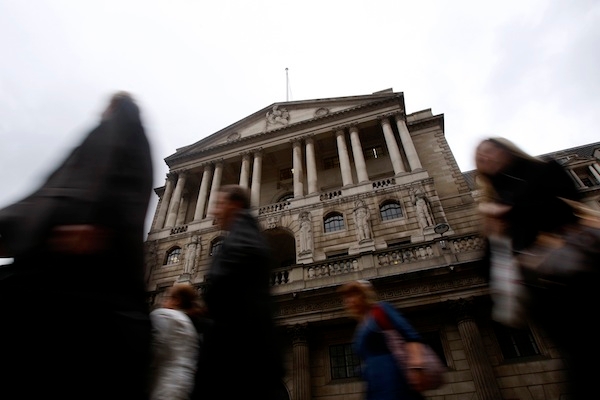A new cache of emails released today by the Bank of England reveal its deputy governor Paul Tucker was warned that it was ‘plausible’ that Libor rates were being ‘influenced by commercial incentives’. Tucker insisted in his appearance before the Treasury Select Committee that he and colleagues ‘thought it was a malfunctioning market, not a dishonest one’. But an email sent by an unnamed official to Mr Tucker on 22 May 2008 points to a possible manipulation of Libor. It contains notes of a meeting which say:
‘There is a long-standing perception that Libor by virtue of the manner in which it is set is open to distortion: panel banks have no obligation to trade or to have trade at the rates that they submit, so it is at least plausible that these are influenced by commercial incentives. In normal times these might only have had a marginal effect, and could bias Libor different ways at different times. But this perception does mean that confidence in Libor is fragile.
‘And in the extreme conditions of the last eight months banks have been subject to the more powerful incentive of avoiding stigma from being seen to submit high rates reflective of what they are actually paying.’
The note says that though US dollar Libor is the subject of discussion, ‘may [sic] of the problems described here, and the proposed reforms, apply to all currencies’.
Email exchanges released at the end of last week have already dragged Sir Mervyn King into the quagmire by revealing he was sent a list of recommendations by Timothy Geithner, who was then the president of the Federal Reserve Bank of New York, which suggested there was an ‘incentive to misreport’. This note elaborates on that incentive, describing it as a ‘powerful’ one in the ‘extreme conditions’ banks were enduring at the time.
There’s quite a big difference between ‘influenced by commercial incentives’ and a ‘malfunctioning market’, and Tucker may want to explain what he made of these notes at the time. They were part of lengthy email exchanges between the Bank and the British Bankers Association about the latter’s review of Libor. King told the Treasury Select Committee when he appeared before it on Tuesday that this review was ‘wholly inadequate’, and indeed scrawled across an email send on Friday 30 May 2008 is: ‘This seems wholly inadequate. What shd we do?’ The Bank is keen to make clear that King and Tucker were pushing the BBA to go further in its reforms of the rate.
Tucker and King maintained on Tuesday that they were never handed any evidence of Libor manipulation at the time, and these notes released today are only further conjecture about what was going on, not hard evidence. The Bank was in a particular quandary as it was not the regulator. The question is whether officials felt there was enough smoke around Libor to suggest a fire and duly passed on these concerns about ‘incentives to manipulate’ to those charged with investigating such things.







Comments